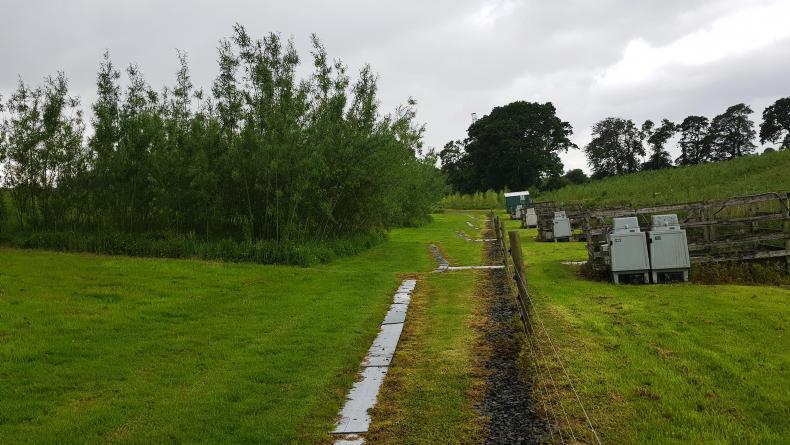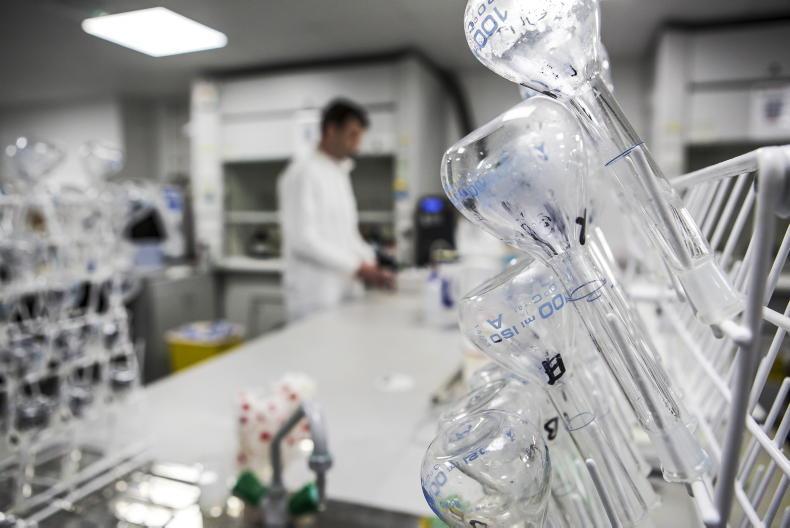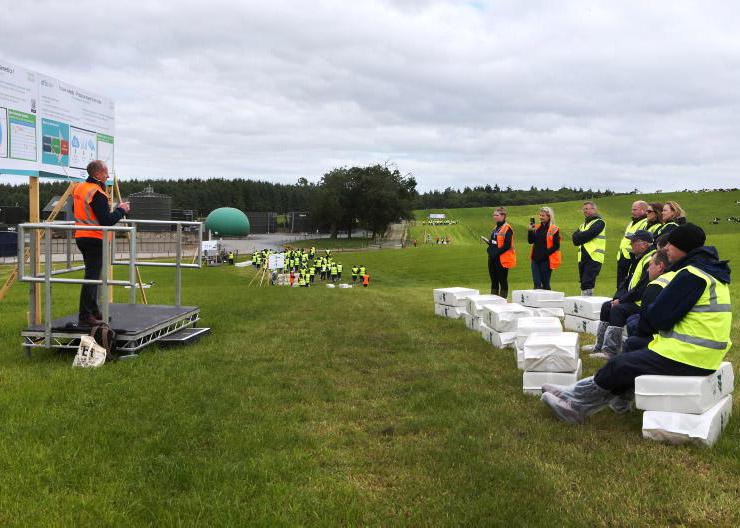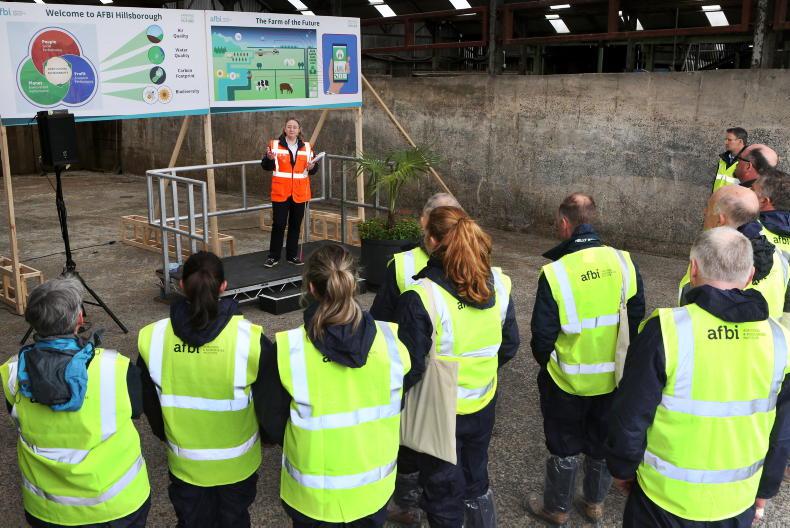Willow planted along waterways at the Agri Food and Biosciences Institute (AFBI) site at Hillsborough has reduced the amount of phosphorus (P) in run-off from grassland.
The AFBI farm was mapped with aerial technology in 2016 and plots of willow measuring 14m by 10m were planted in areas that were identified as preferential pathways for water run-off.
Adjacent plots were not planted as a control, and run-off is being collected in drains below each plot before it enters the waterway at the bottom of the field.
Speaking to members of the NI Institute of Agricultural Science (NIIAS) on Monday, Chris Johnston from AFBI said that provisional results show that there is 29% less P collected in areas where there is willow. “We want to mine P out of the soil and at the same time displace greenhouse gases by harvesting the willow for biomass heating,” he said.
Other research into removing P from the AFBI farm includes use of a screw press to partially separate slurry and anaerobic digestate into solid and liquid factions. The solid faction is then exported to a local arable farm at a lower cost than transporting unseparated slurry, and the liquid faction is spread on the AFBI farm.
Dr Gary Lyons from AFBI said that initial research findings indicate that the solid faction contains around 25% of the digestate’s total P content, 14% of its nitrogen and 10% of its potassium.
“We will be looking at does separation increase or decrease ammonia emissions, but we don’t know the answer to that yet,” Lyons said.
McCann elected
NIIAS chair
At the AGM of the NI Institute of Agricultural Science (NIIAS), which took place at AFBI Hillsborough on Monday, Irish Farmers Journal NI correspondent Peter McCann was elected as chair for a one-year term.
He replaces AFBI beef researcher Dr Francis Lively.
Read more
Are green fuels green enough?
Your farm: beginner's guide to tree planting
Willow planted along waterways at the Agri Food and Biosciences Institute (AFBI) site at Hillsborough has reduced the amount of phosphorus (P) in run-off from grassland.
The AFBI farm was mapped with aerial technology in 2016 and plots of willow measuring 14m by 10m were planted in areas that were identified as preferential pathways for water run-off.
Adjacent plots were not planted as a control, and run-off is being collected in drains below each plot before it enters the waterway at the bottom of the field.
Speaking to members of the NI Institute of Agricultural Science (NIIAS) on Monday, Chris Johnston from AFBI said that provisional results show that there is 29% less P collected in areas where there is willow. “We want to mine P out of the soil and at the same time displace greenhouse gases by harvesting the willow for biomass heating,” he said.
Other research into removing P from the AFBI farm includes use of a screw press to partially separate slurry and anaerobic digestate into solid and liquid factions. The solid faction is then exported to a local arable farm at a lower cost than transporting unseparated slurry, and the liquid faction is spread on the AFBI farm.
Dr Gary Lyons from AFBI said that initial research findings indicate that the solid faction contains around 25% of the digestate’s total P content, 14% of its nitrogen and 10% of its potassium.
“We will be looking at does separation increase or decrease ammonia emissions, but we don’t know the answer to that yet,” Lyons said.
McCann elected
NIIAS chair
At the AGM of the NI Institute of Agricultural Science (NIIAS), which took place at AFBI Hillsborough on Monday, Irish Farmers Journal NI correspondent Peter McCann was elected as chair for a one-year term.
He replaces AFBI beef researcher Dr Francis Lively.
Read more
Are green fuels green enough?
Your farm: beginner's guide to tree planting









SHARING OPTIONS